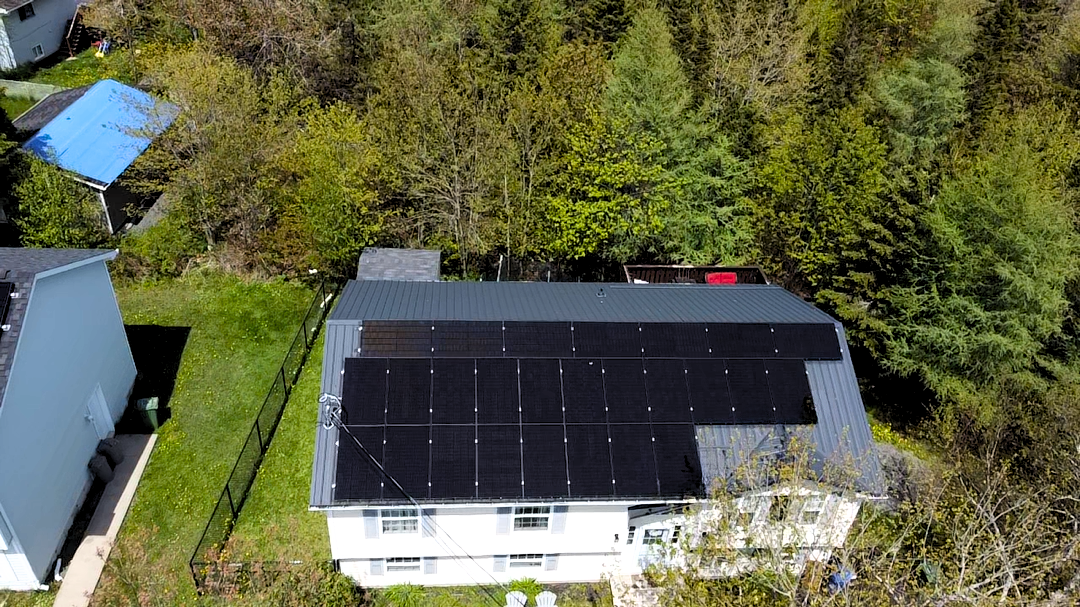Benefits of Solar Panel Technology for our Cold Winter Climates
If you have been following our recent blog entries, you should be aware that solar panel technology works perfectly well in winters as well. Our latest blog explained what adjustments you will need to make to the angle and tilt of your panels, in order to derive the maximum use out of them during winters.
For those of you who are now convinced about investing in residential solar technology, this particular blog post will be a treat to read, as we will be amplifying the particular benefits associated with the use of residential solar energy. And for readers, who still have some doubts about solar power, this is exactly what you are missing out on…
FOLLOWING ARE THE ADVANTAGES OF USING SOLAR ENERGY:
Energy independence:
The most appealing benefit of solar panel technology is that it makes your household energy independent or something close to it. You will have your very own power generation infrastructure in place. Reliance on third-part electric utilities will be diminished and you will be truly energy self-sufficient, that should be something to brag about!
Solar Panel technology is an investment, not a cost:
Though the costs have reduced significantly, yet venturing in solar technology is still not a pocket-friendly endeavor. Residential solar panels still cost around $10000-$16000. The cost of solar panels is a disadvantage, but the economics of solar energy is certainly an advantage.
What is meant by that is although a solar power system may require a large capital investment in the $10,000 to $16,000 range (pre-rebate), the system will pay for itself by reducing the amount of grid electricity you have to buy (which also lowers your transmission and distribution fees).
For example, if your solar energy system is paid off in 15 years and the modules and inverters are warrantied for 25 years, then you are going to have 10 full years of profits.
And that’s if the system only reaches the warranty limit. Solar power systems are expected to last longer than 25 years, although component replacement may be required when the need arises.
Cleaner source of energy:
Solar power is one of the cleanest sources of energy because it does not emit any pollution when it is produced or consumed, so it can help avoid the carbon dioxide (CO2) and other air pollutant emissions associated with conventional electricity generation.
If we as a society are to combat climate change and mitigate the effects, then we need to reduce our C02 emissions. Installing solar panels is just one way we can be better in this area.
Generating electricity from coal is the most emission-intensive way to produce energy today. From the mining, through the cleaning and burning, carbon dioxide is released at catastrophic rates. On the other hand, Solar panels produce 5x to 10x fewer carbon emissions per unit of energy relative to coal or natural gas. This is phenomenal!
Government Incentives:
Currently, the vast majority of installed solar capacity in Canada is located in Ontario. With its generous rates, Ontario's feed-in-tariff program created a solar boom in this province. In Canada, available incentives programs are mostly at the provincial/territorial level with a few local/municipal programs. Currently, Canada does not have a federal tax credit for solar energy. However, the rapid adoption of solar power technology and the need to meet growing energy demands might just push the government to introduce such an incentive in order to send a clear message to Canadian consumers.
Renewable Source Of Energy:
Finally, a renewable energy source is any source of energy that replenishes naturally on a human timescale. Non-renewable energy sources like coal and oil aren’t considered renewable because they form over hundreds of thousands of years, which makes them unable to replenish at the rate humans use them today. Solar energy is a renewable resource, meaning it won’t ever run out or be in short supply. We simply need to build enough solar panels to capture it.
Solar energy reaches us via the sun’s rays, while fossil fuels come from ancient carbon-rich remains on earth. So, as long as the sun is shining, solar energy will be around. (For reference, NASA scientists say the sun is about halfway through its lifetime, which means that we have about 4.5 billion years to take advantage of solar energy.) Solar energy is a remarkably dependable energy resource, and will always be available for us to use.
Thanks for Reading!
Brian McKay
(aka The Solar Guy)


For more information about a Solar Energy Solution, including Whole Home Solar PV and Solar Pool Heating solutions for your home or business, please contact AZTEK SOLAR for your free on-site evaluation and ask about the $3,000 cash-back rebate now available.
AZTEK SOLAR is a leading Nova Scotia residential and commercial solar installer, serving Halifax, Dartmouth and the surrounding areas throughout rural Nova Scotia.
With expertise in a wide variety of systems, including Solar PV (grid-tied) systems, solar hot water and solar pool heating systems, AZTEK SOLAR has helped hundreds of Atlantic Canadian homeowners, farm operations, business owners and municipalities lower their energy bills while reducing their carbon footprint.
#SolarIsNow #RenewableEnergy #AztekSolar



